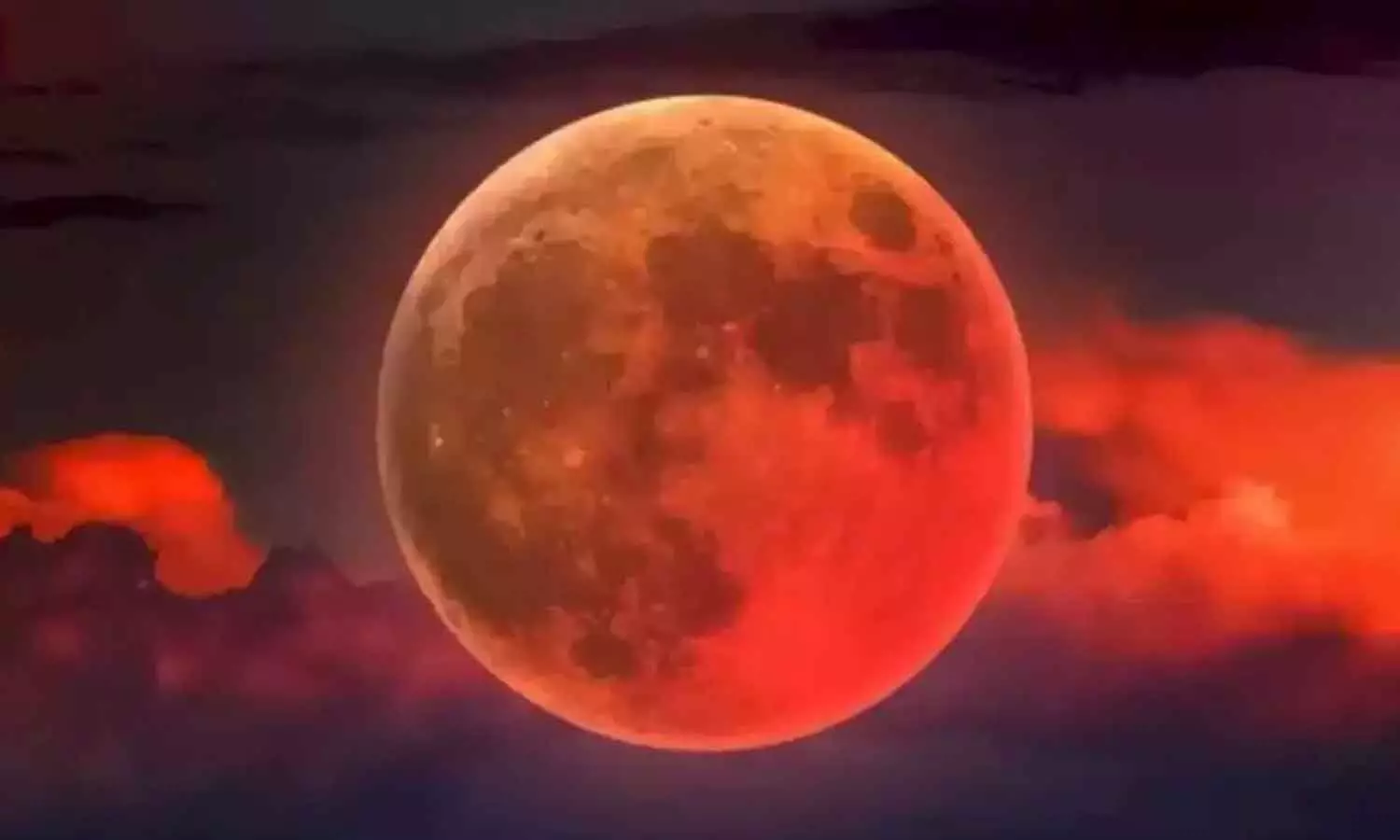Total Lunar Eclipse to Dazzle India on September 7-8, 2025: How and When to Watch the Blood Moon
India is all set to witness a spectacular celestial show as a total lunar eclipse, also known as Chandra Grahan, will occur on Sunday, September 7.
Total Lunar Eclipse to Dazzle India on September 7-8, 2025: How and When to Watch the Blood Moon

New Delhi: India is all set to witness a spectacular celestial show as a total lunar eclipse, also known as Chandra Grahan, will occur on Sunday, September 7. During this phenomenon, the Sun, Earth, and Moon align in a straight line, with the Earth blocking direct sunlight from reaching the Moon.
Lunar Eclipse Schedule in India:
Sutak Period begins: 12:57 PM IST
Penumbral phase: 8:58 PM IST
Partial eclipse begins: 9:57 PM IST
Eclipse peak: 11:42 PM IST
Eclipse ends: 1:26 AM IST (September 8)
What is a ‘Blood Moon’?
During the total lunar eclipse, the Moon will appear deep crimson or red, popularly referred to as a ‘blood moon’. This occurs because the Earth’s atmosphere scatters shorter wavelengths of blue light while allowing the longer red and orange wavelengths to reach the Moon, giving it a reddish hue.
Visibility Across India and Beyond
The blood moon will be visible across India, from Delhi and Mumbai to Bengaluru, Chennai, Kolkata, Hyderabad, and Pune. The eclipse will also be observable in parts of Asia, Australia, eastern Africa, and portions of Europe.
How to Watch the Eclipse
Unlike a solar eclipse, a total lunar eclipse is completely safe to view with the naked eye. Enthusiasts can also watch it via livestream if outdoor viewing is not convenient.
Photography and Viewing Tips
Clear skies and minimal pollution enhance the view, making high-altitude or dry regions ideal for observers and photographers.
A basic setup including a camera, lens, and tripod is sufficient. For detailed shots of the Moon, a telephoto lens of 200mm or higher is recommended, while wide-angle lenses can capture landscapes or city skylines alongside the eclipsed Moon.
Observers can also enjoy spotting nearby stars, constellations, or planets during the eclipse.
This lunar eclipse promises to be a memorable visual treat, offering a unique opportunity for stargazers and photography enthusiasts alike.

